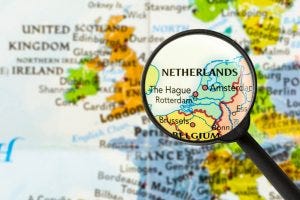
The $150 million facility in The Netherlands is now fully operational and will produce CAR-T therapy Yescarta for up to 4,000 patients per year, says Kite.
In 2018, Gilead Sciences, fresh from its $11.9 billion acquisition of Kite Pharma, announced plans to open a European facility to manufacture chimeric antigen receptor (CAR) T-cell therapies.
Today the firm has announced the 204,514 square-foot site – the largest in Kite’s network – has received approval from the European Medicine Agency (EMA) for the end-to-end manufacturing of individualized cell therapies, specifically Yescarta (axicabtagene ciloleucel.

Images: iStock/naruedom
Yescarta became the second CAR-T therapy to receive US FDA approval back in October 2017 and was approved by the European Commission in August 2018. The large B-cell lymphoma treatment pulled in sales of $456 million in 2019.
“The facility is equipped similarly to our Santa Monica facility to manufacture our cell therapy Yescarta end to end. This includes supply chain management, cryopreservation, manufacturing labs (clean rooms), quality laboratories and storage,” Kite spokesperson Nathan Kaiser told this publication.
The plant in El Segundo, Santa Monica opened in 2016 with capacity to treat up to 5,000 patients a year. The Amsterdam plant will, according to Kite, have the capacity to produce therapy for up to 4,000 patients per year.
The European site – which represents an investment of €130 million ($150 million) – is part of a focus to scale out Kite’s geographies and capabilities by owner Gilead. Along with El Segundo and Amsterdam, construction of a facility in Frederick County, Maryland is underway with commercial production expected by late 2021, and a 67,000 square-foot facility is being built within Gilead’s site in Oceanside, California to supply viral vectors.
Meanwhile, Kite has been increasing its network of apheresis center to administer the cell therapy. The firm says it has nearly 90 qualified treatment centers in 16 countries across Europe and Israel that will be served by the Amsterdam facility, while in the US an SEC filing in 2017 said the firm was targeting “70-90 key transplant and lymphoma centers” in the US.
About the Author
You May Also Like

schedl_b_and_w.jpg?width=100&auto=webp&quality=80&disable=upscale)
schedl_b_and_w.jpg?width=400&auto=webp&quality=80&disable=upscale)






